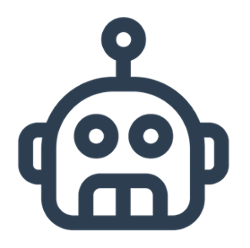How Artificial Intelligence can help in Finding Marketing and Sales Leads
Artificial
intelligence (AI) has now become an integral part of our lives. It’s how Amazon
suggests products, Google answers our searches, and Pandora plays another song.
AI allows
scalable growth, and personalizes customer experiences for marketers. AI is a
powerful marketing strategy as it allows marketers to outdo themselves in their
roles by interacting with their customers through targeted messaging — all at
scale.
Here are the
five ways AI can assist sales and marketing in finding leads.
1. Support Sales with Appropriate Customer Experiences
Customers now
expect personalized experiences and interactions through their favorite
channel. AI-driven predictive content tools are allowing marketers to be more
tactical, while reducing the workload.
These AI-driven marketing programs can examine your website for case
studies, white papers, blogs, articles, videos, eBooks, etc. Once the content
gathered, AI foresees what will appeal and ultimately convert each audience
section. These Insights can be used to engross visitors across web, email,
social, and mobile channels for a complete Omni-channel approach. The outcome
is one-to-one value marketing that organizations weren’t earlier able to attain
without substantial scaling.
AI-powered
marketing engagement platform provide marketers with data-driven intelligence
that supports company-wide strategies for a uniform brand conversation.
2. Settle on Qualified Leads from the Start
Today more than
ever before, closing deals needs a coordinated arrangement between sales and
marketing. Generally, one of the most challenging areas of alliance is
approving on what qualifies a lead marketing scenario, what makes for a
“perfect customer profile.”
Of course,
marketers are well-equipped with a broad range of lead scoring tools and plans,
resulting in a computerized qualification process, but even automation has its
limits. It can be tough to set up scoring in a meaningful manner that supports
wide audiences, product offerings, and sales strategies. Though, predictive
lead counting and predictive account scoring offer value where other solutions
may not, resulting in a solid foundation between sales and marketing.
3. Personalize Messaging With AI Insights
Google has been
using machine learning and AI longer than most sales and marketing teams, and
they’re more deeply endowed in it than most of us combined.
RankBrain,
Google’s machine learning program, observes user engagement 24/7/365 to offer
the best search results for each query that someone types into a Google search
bar. The result of that continuous examination is exhibited in each search
engine results page (SERP).
If your
organization develops EHR software, for instance, data-driven insights into
your spectators are one Google search away. Type “EHR” and see the answers
Google’s AI is displaying. Is it a description? Are they product pages? What
allied searches are enumerated at the bottom?
Those are all
bases to understanding the language your viewer is using, the questions they’re
requesting, and the key criteria that explain your ideal customer profile—which
is vital information for both sales and marketing. You can get this important
information by reverse-engineering organic search results.



Comments
Post a Comment